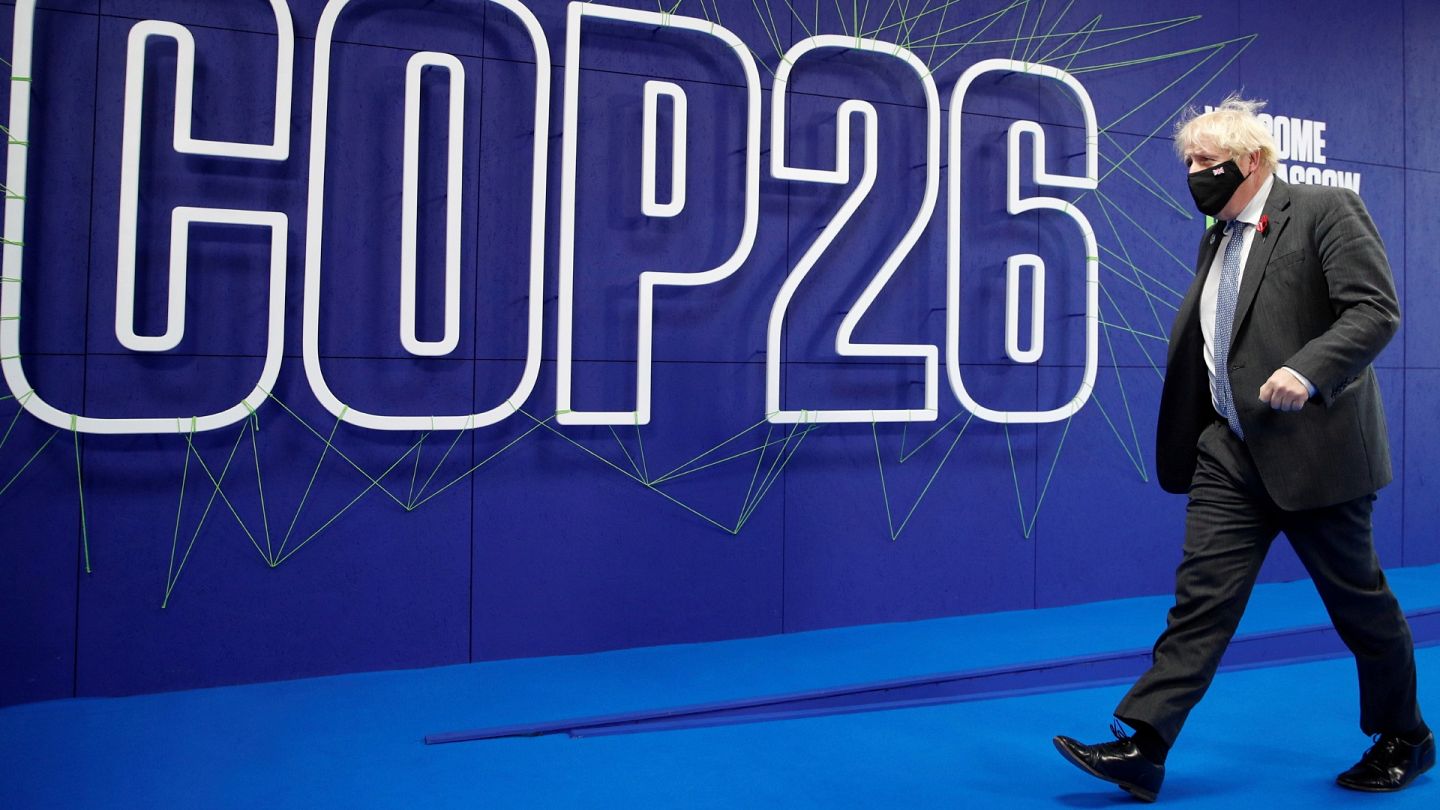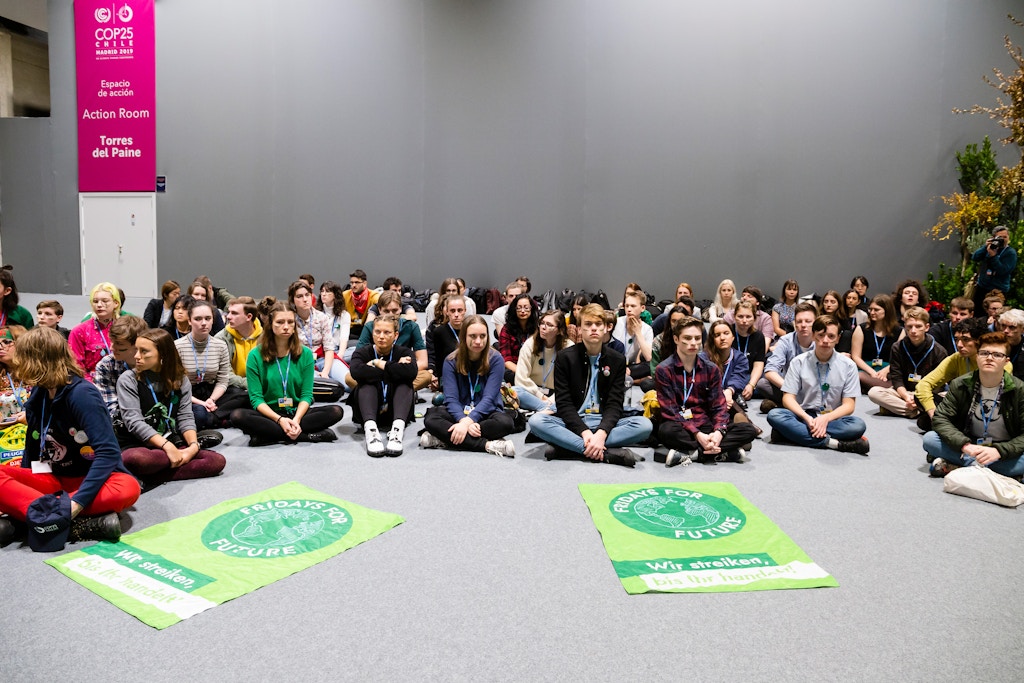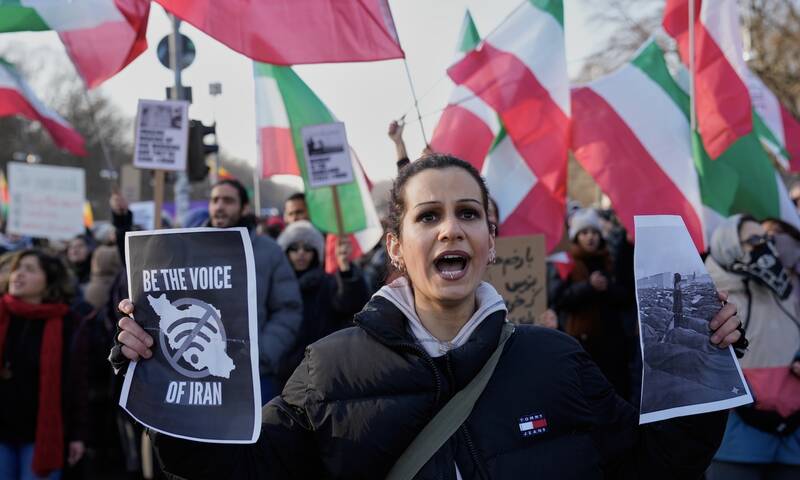The 26th United Nations Climate Summit, COP26, ended in Glasgow, Scotland, on November 13, 2021. One hundred ninety-seven countries agreed to the Glasgow Climate Pact. This ‘not legally binding’ agreement expects the 197 countries to keep temperatures below 1.5 degrees celsius, phase out coal, reduce emissions, and prevent further deforestation by 2030.
This agreement betrays the people in the countries most affected by the climate crisis as it fails to recognise the urgency of action required and fails to guarantee a loss and damage fund to countries like Tuvaluv, Bangladesh, Maldives and Uganda that are currently suffering as an impact of rising sea levels. The agreement falls short to guarantee climate finance that will enable infrastructure and resources to switch to renewable sources of energy and other sustainable alternatives to developing countries like India and Brazil that was promised in 2015 in the Paris Agreement.
The earliest mention of fossil fuels contributing to the climate crisis by scientists was back in 1883. Since then, it took 26 climate summits for the world’s nations to agree that climate crisis needs urgent action and that fossil fuels are the biggest polluters and cause of the climate crisis.
In these summits, white, privileged, upper-caste and upper-class men, almost all over 60 years of age, sit in suits in air-conditioned rooms and juggle with the lives of millions of people. As a youth observer delegate at the COP26, I witnessed indigenous people share their trauma and struggles of how mother earth is being exploited. Farmers, fisherfolk, labourers and climate refugees shared the problems they face due to the impact of climate crisis enabled by developed countries. People travelled thousands of kilometres from different countries to come together to share their struggles in hopes of living a better life and being supported to find solutions to their problems.
As a youth observer delegate at the COP26, I witnessed indigenous people share their trauma and struggles of how mother earth is being exploited. Farmers, fisherfolk, labourers and climate refugees shared the problems they face due to the impact of climate crisis enabled by developed countries. People travelled thousands of kilometres from different countries to come together to share their struggles in hopes of living a better life and being supported to find solutions to their problems.

At COP26, countries like the US, the UK, China, the European Union and India spoke about these issues and give what sound like empty promises and goals, and then changed their stance at the 11th hour. The COPs thus resemble the relationship with that toxic ex that we keep going back to even though it often does more harm than good.
Also read: Climate Change: We Need To Stop Putting All The Blame On Population Growth
Healthy Relationships and Healthy Negotiations
A healthy relationship is one where there is a mutual desire for all parties involved to succeed in all areas of life. At COP26, fossil fuel representatives had the most delegates – 503 out of the 40,000 delegates. History is witness to how these companies have blood on their hands from some of the largest oil spills and violations of indigenous rights like the shell oil spill in Nigeria, the Exxon Valdez oil spill in the US, and the BP oil spill in the Gulf of Mexico. At COP26, these corporate representatives prioritise profit before the people and planet. At every COP, they continue to get the most representation to discuss the world’s future but on their arbitrary terms. Real solutions, actions and implementation can only happen when the polluters are out of climate conferences and when negotiations mainstream the communities and the planet that has been affected.

Exclusionary Nature of COP 26
COP negotiations lack kindness and compassion: often, the conversations are filled with hostility, criticism and disrespect. Rich countries try to assert power by controlling and manipulating more vulnerable countries by changing language, editing the fine print or delaying discussions on important topics. On 12 November, 134 countries in the G77 had agreed for a separate funding for loss and damage caused due to natural disasters, especially for island nations. The United States and European Union showed strong opposition to this fund. Consequently, on 13 November, the final draft only featured setting up a “dialogue” between affected countries and international organisations to discuss further “arrangements” for loss and damage funding.
COPs act as spaces for rich countries and corporations responsible for pollution to perpetuate these toxic behaviours of ignoring people’s needs, constant stress, and walking on eggshells. COPs enable colonial, capitalistic, patriarchal and imperialistic systems and processes that are cutthroat, power and profit-oriented. In contrast, for climate justice and a secure future, we need people and planet-centred solutions that are compassionate, safe, inclusive and peaceful.
In 2009, at the COP in Copenhagen, the developed countries promised to mobilise 100 billion USD in climate finance per year by 2020. The Global North countries did not meet this goal, and in 2015, at the COP21 in Le Bourget, the deadline was extended through 2025. At COP26, the goal will now be met in 2023. For how long will developing countries wait? COPs enable negative financial behaviours of rich countries and corporations.
Climate Justice starts with Indigenous Leadership
There is still hope though: systems can be changed, and people can unlearn and evolve from unhealthy behaviours. At the People’s Plenary in COP26, on November 12, an indigenous youth leader from Canada, Ta’kaiya Blaney, shared that “COP26 is an illusion constructed to salvage capitalist economies rooted in resource extraction and colonialism, I didn’t come here to fix the agenda, I came here to disrupt it.”… “Colonialism is what caused climate change, and I am not going to my colonisers for solutions. We reject colonial solutions for climate change.”

The people’s plenary was followed by a mass walkout and climate rally to reject the negotiations and COP26 and highlight the real people problems and solutions led by indigenous leaders and frontline defenders. The real change was happening on the streets in Glasgow and across the world where young people, indigenous leaders, farmers, fisherfolk, women, labourers were coming together to imagine a future with hope, sustenance and resilience, and creatively envisaging a future centred around love, people and the planet over profit.
Also read: How National Water Policies Fail To Address The Special Needs Of Women
Women and Youth Participation at COPs
At COP25 in Madrid, 155 out of 196 heads of delegation were men. COP26 had more representation of women but there was still disparity when it come to decision making and a seat at the table. According to the UNFCCC’s factsheet, gender parity in climate leadership will be achieved only in 2068. Research found that countries with more female politicians pass more ambitious climate policies, and studies by the UN show that 80% of people displaced by climate change are women and that the risk of sexual violence is increasing due to climate change.
At COP26, the problem of “youth washing” was highlighted by youth activists. Young people experience this phenomenon in how they are invited to events with important political scope but are refused opportunities to participate in decision making processes and negotiations.
At COP25 in Madrid, 155 out of 196 heads of delegation were men. COP26 had more representation of women but there was still disparity when it come to decision making and a seat at the table. According to the UNFCCC’s factsheet, gender parity in climate leadership will be achieved only in 2068. Research found that countries with more female politicians pass more ambitious climate policies, and studies by the UN show that 80% of people displaced by climate change are women and that the risk of sexual violence is increasing due to climate change.

Based on the past COPs and being a youth observer delegate at COP 26, it is clear that the COPs enable unhealthy patterns rooted in patriarchal hierarchies like toxic communication, controlling behaviours, dishonesty, patterns of disrespect, negative financial behaviours, constant stress, ignoring needs and walking on eggshells: all projected by the delegates of privileged and developed nations and very similar to the behavioural patterns of our toxic exes.
COPs need to stop being centered around profit at the cost of the pollution of and destruction of the planet. We need world negotiations that prioritise people and a planet led by indigenous elders, youth and women. We need polluters out of conferences, events, and discussions on our futures, the futures of our planets and alternative solutions that enable adaptation and mitigation of the climate crisis.
Sriranjini Raman is a student and community organizer, passionate about intersectional anticaste climate justice and environmental education. They volunteer with Fridays For Future India. You can find them on Instagram, Twitter and LinkedIn.
Featured image source: BBC




